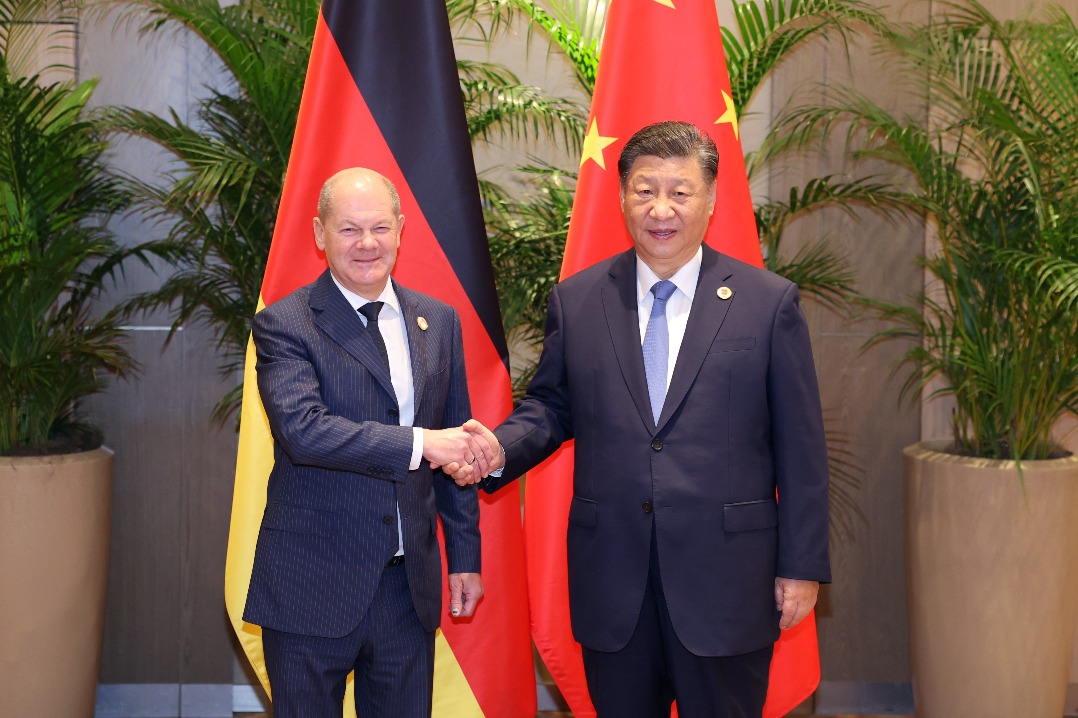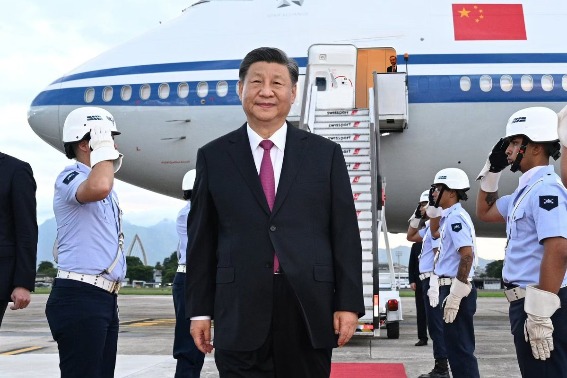Bridging information gaps sees benefits
By LIA ZHU in San Francisco | China Daily Global | Updated: 2023-11-17 09:27

As intellectual property issues are caught in the middle of tensions between China and the United States, an IP law expert in Silicon Valley has set her sights on bridging the information gaps and inspiring exchanges between the two sides.
"Many businesses and policymakers seem to have little knowledge about China law and policy. Worse, some may have 'myths'," said Mei Gechlik, founder and CEO of Sinotalks, a think tank and consultancy in Silicon Valley.
One of the popular myths is that foreign parties cannot win in Chinese courts or State-owned enterprises, and that government agencies are so powerful that lawsuits brought by private enterprises against them are doomed to failure.
"Is there any chance for a private enterprise to win a lawsuit against a State-owned enterprise or a government agency in China? In an apparent attempt to boost confidence in the Chinese market, the Supreme People's Court of China has signaled an affirmative answer to this question by releasing two court cases," Gechlik wrote in a recent publication.
Articles like these, debunking myths around China laws with real cases that challenge such impressions, have gained wide appeal quickly. In less than two years, the websites of Sinotalks have attracted more than 100,000 users mostly from the US and China. They have nearly 5,000 subscribers to the monthly newsletter and many of them are judges, policymakers and business leaders.
"Disinformation, misinformation, and delayed information all lead to missed opportunities," said Gechlik. For example, one of their recent focuses is on China's national policies for the development of AI industries in the country, with a focus on the main characteristics of the AI industries in the major cities of Guangzhou, Shenzhen and Shanghai.
'Little understood topics'
The think tank also tries to shed light on "little understood topics "such as China's strategic policymaking and judicial decision-making processes. "There are not enough studies that help clarify these topics, and even if these studies exist, they are often not presented in forms that can reach more global readers," Gechlik explained.
She recently wrote an article to explain how China will take eight actions to support the "high-quality" development of the Belt and Road Initiative to, among other goals, meet "people's expectations".
She discussed some expectations people in countries involved in the initiative have and explained how China's action plan has the potential to align well with these expectations.
Gechlik believes her think tank is uniquely positioned to bridge the gaps. She founded Sinotalks in 2021 in the hope of connecting China with the rest of the world in IP and other legal exchanges. The advisory board consists of 10 experts inside and outside China.
Her career was inspired by a cultural trip to Beijing in the 1980s and exchanges with Chinese judges, including the chief judge of the Supreme People's Court's administrative division at the time, in the 1990s for her doctorate dissertation at Stanford University.
"The exchanges between US judges and Chinese judges are particularly important because judges command so much respect that their joint efforts can inspire the organization of more collaborative activities going beyond the two countries' court systems," said Gechlik.
























